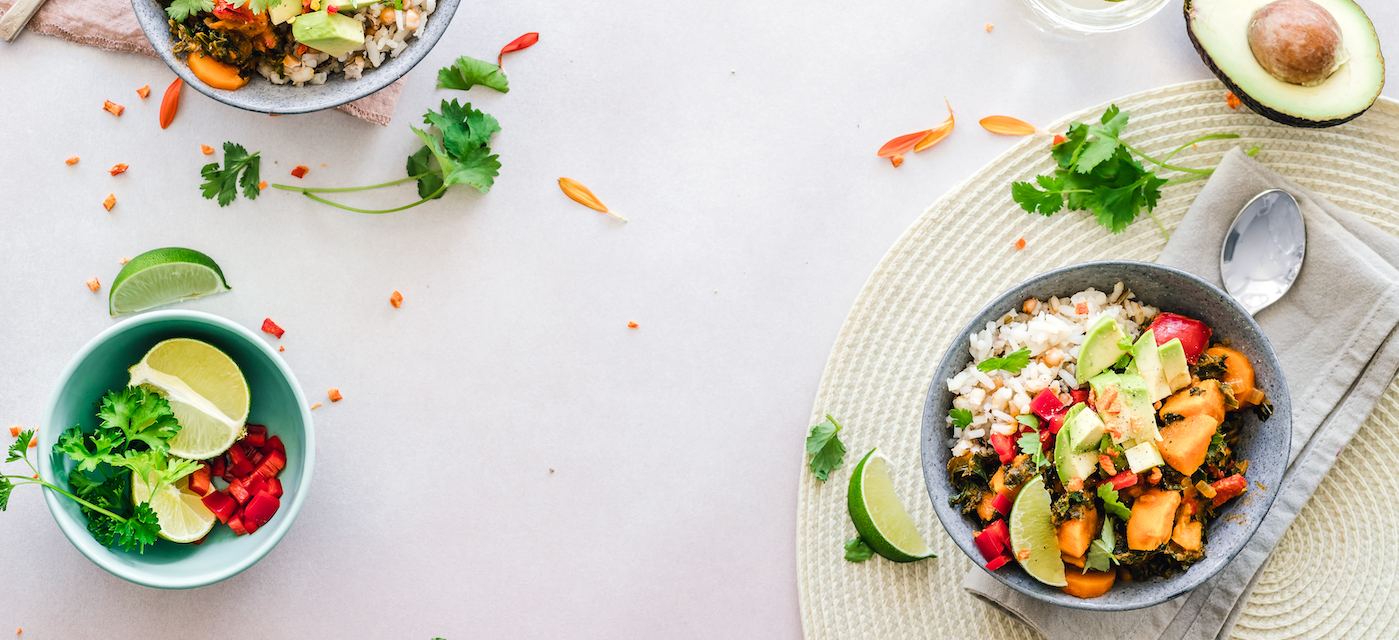
Some Practical Thoughts On Food
The food industry is going through some radical changes, and as with most debates, the loudest voices are often the most polarizing. We believe the discussion is much less black and white, so here are some practical thoughts on food:
Calories:
A calorie is simple a measure of energy (heat) specifically the amount of energy needed to raise 1 gram of water by 1 ° Celsius. Our bodies are complex. While it is important to give our bodies enough energy to function optimally, they need more than just energy to heal and grow, they also need the building materials, scientifically known as nutrients. Everything has calories, but not everything has the nutrients we need. For optimal weight and health, focus on eating nutrient dense whole-foods, rather than counting calories. Your body will be naturally satisfied once it has the vitamins and minerals it needs, whereas calories without nutrients will only leave you unsatisfied on a full stomach.
Veganism:
We get it, we love life too, but Veganism is much like the Paleo Diet, a great story without solid science to back it up. Nothing is 100% vegan. Harvesting crops with industrial scale machinery results in the death of large numbers of rodents and other mammals, and is more harmful than harvesting honey for example, which doesn’t require the death of bees (and there’s new smoke-free technology that is more bee friendly.) If you really look at the science, humans never could have evolved to have the brains and conscience we do today without animal protein. Where do we draw the line? One very compelling argument is the sustainability side of veganism, which is one reason we chose to use hemp as the protein source in our bars. But like Epicurus said, “everything in moderation, even moderation.” Respect the benefits of plant-based proteins; they’re a great diet staple, and from sources like hemp you can be confident that they’re healthy for you and the environment, i.e., you don’t have to go 100% cold tofurky.
GMO’s:
Since the dawn of farming, humans have been genetically modifying their food. Look at any modern fruit or vegetable and you can see it’s been bred over generations to be more larger, juicier, greener, and more palatable. Your modern apple is a genetically modified hybrid of various crab apples. The danger of modern GMO’s is not the technology itself, but the way it is being used. Rather than altering our food to make it healthier, more nutrient dense, more flavorful, etc. the primary commercial uses to date are creating foods that can with-stand toxic chemicals, grow faster, and stay fresh longer, with little or no regard for food quality. The primary known danger of GMO’s in food is the high likelihood of an increased ingestion of harmful chemicals, since more robust plants allow farmers to spray more and more chemicals on their crops. This is also creating more harmful runoff into our water supply, which is largely unregulated, and one factor in the increasing frequency and intensity of toxic algae blooms harming people, wildlife, and even creating undrinkable water supplies for entire cities. That said: Avoid GMO’s until further notice.
Processed Meats:
“Have you ever seen how a hot dog is made? It’s all the animal scraps, mixed up and shoved in a tube.” This is a common mantra in the meat conversation, but at the same time we praise indigenous peoples like the First Nation for using every part of the animal. Tribes like the Sioux would even have contests where two people would eat from either end to see who could reach the middle of a raw bison intestine first, still full of digesting grass.
The real harm in processed meats is the health and treatment of the animal, and the level of processing. You don’t eat rotten produce, yet factory farming is creating the meat and poultry equivalent in sick and dying animals. When organisms eat and digest food, the contents of that food are stored and used throughout the organism. If this organism (which will eventually become food for you and I) does not have the elements it needs to heal and grow (e.g. proper diet, environment, and space to roam) then you won’t get what you need to heal and grow, by eating it. Even after slaughter, high levels of processing with heat, solvents, and other dangerous methods change our food on a molecular level, altering the structure of fragile nutrients and the way our body reacts when we eat them.
Sugar:

Sugar is highly addictive, it’s also highly delicious, highly available, and almost impossible to avoid. But you don’t need to totally avoid sugar, at least, not forever. If you really need something sweet, go for some fresh fruit (Careful not to eat in excess; modern fruit ≠ vegetables, it’s been bred for optimal sweetness, not nutrient density,) 85%+ dark chocolate, kombucha (incredible soda substitute) a low sugar natural protein bar (think Hemplete,) or similar. Excepting fruit, make sure a serving is 5g of sugar or less, to minimize blood sugar impact, and eaten along with healthy fats, fiber and protein. You’ll be surprised how much more depth of flavor you’ll discover in your food when you eat less sugar, amongst TONS of added health benefits!
Carbs:
Carbs are essentially sugar; they’re broken down into glucose and processed the same way. If you’re active, you need carbs to restore the muscle glycogen after your exercise, and some unprocessed carbs like rice or sweet potatoes are a great solution. Always accompany carbs with healthy fats and protein, just like any other meal. One rule of thumb is to try and eat the majority of your carbs immediately after some physical activity to make sure your body stores them in muscle and not fat. If you do eat bread, eat sprouted grain or sourdough, preferably homemade. These are easier to digest, the nutrients are more bio-available, and the carbs are less refined and slower digesting, which means they will have less of an impact on your blood sugar.
Portions:
If you’re eating real, nutrient-dense foods, you will naturally eat less. However many of us have been programmed to eat until we’re full, rather than satisfied. Since childhood, we’ve been expected to finish everything on our plate because other children are starving. This is a dangerous mindset. Listen to your body — there’s no need to eat if you’re already satisfied. Your leftover plate isn’t going to make it to rural parts of Africa whether you eat it or not. Listen, learn, and adjust your portions in the future. You should be able to get up and get active after you eat which typically means you will eat smaller meals more frequently, but then again, everyone is different. Listen to your body.
If you enjoyed these thoughts on food, you might also enjoy our hemp protein bars which were crafted on the same values. They’re low in sugar, high in protein, and made with all real ingredients you can trust.



Leave a comment
This site is protected by hCaptcha and the hCaptcha Privacy Policy and Terms of Service apply.